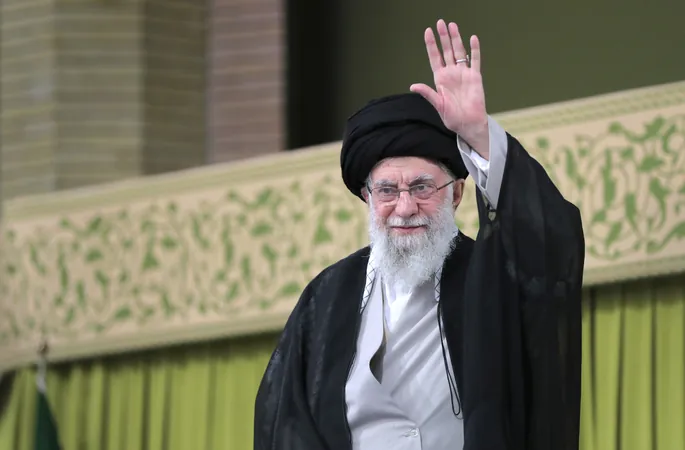
Iran Stands Firm Against Nuclear Weapons While Vowing to Defend Itself 'By All Means'
2024-11-05
Author: Ken Lee
Introduction
In a bold statement that has heightened regional tensions, a spokesperson for Iran's Ministry of Foreign Affairs has declared that while the Islamic Republic rejects weapons of mass destruction, it remains committed to arming itself sufficiently to safeguard its national interests.
Iran's Official Stance
During a recent press conference, spokesperson Esmail Baghaei addressed concerns surrounding Iran's controversial nuclear program, which has drawn the ire of both the United States and Israel, particularly after Tel Aviv's military actions in the region. "The official stance of Iran in rejecting weapons of mass destruction and maintaining the peaceful nature of our nuclear program is unequivocal," Baghaei stated.
Defiance Against Aggression
Adding a note of defiance, Baghaei emphasized that the nation would leverage all available resources to respond to what he called "recent aggressions by the Zionist regime." This assertion mirrors previous statements made by Iran's Supreme Leader, Ayatollah Khamenei, who has repeatedly warned of a "tooth-breaking response" to perceived threats from Israel and the U.S.
Potential Nuclear Policy Changes
Khamenei's advisor, Kamal Kharrazi, echoed these sentiments, suggesting that Iran might reconsider its nuclear weapons policy should an existential threat emerge. "If such a threat arises, Iran will modify its nuclear doctrine. We possess the capability to develop these weapons, and currently, the only barrier to their production is the Supreme Leader's fatwa," Kharrazi asserted. This fatwa, issued in the 1990s, explicitly prohibits the development of nuclear arms.
Increased Military Confrontations
The escalating rhetoric from Iranian leaders comes against a backdrop of increased military confrontations. Just recently, on November 2, Khamenei pledged that the enemies targeting Iran would receive a "crushing response."
Recent Military Actions
Tensions between Iran and Israel have soared in recent months. Iran has conducted significant military operations, including a striking barrage of 300 missiles and drones aimed at Israel in April, a retaliation for the deaths of Iranian soldiers in Syria. More provocatively, on October 1, Iran launched around 180 missiles into Israeli territory, leading to a retaliatory airstrike by Israel on October 25, which targeted facilities in Tehran associated with the Iranian Revolutionary Guard Corps (IRGC), particularly those involved in ballistic missile production.
Accusations Against the U.S.
Furthermore, Iran has voiced strong accusations against the United States, suggesting complicity in Israel's military actions and describing ongoing U.S. sanctions and support for Israeli operations as forms of "unlawful interference."
Conclusion
As the situation develops, it remains crucial to monitor how these dynamics influence both regional stability and global diplomatic efforts regarding Iran's nuclear ambitions. The specter of conflict looms large, with both sides seemingly preparing for a prolonged confrontation. Will diplomatic resolutions emerge, or are we heading toward further escalation? Stay tuned for more updates on this unfolding crisis.


 Brasil (PT)
Brasil (PT)
 Canada (EN)
Canada (EN)
 Chile (ES)
Chile (ES)
 España (ES)
España (ES)
 France (FR)
France (FR)
 Hong Kong (EN)
Hong Kong (EN)
 Italia (IT)
Italia (IT)
 日本 (JA)
日本 (JA)
 Magyarország (HU)
Magyarország (HU)
 Norge (NO)
Norge (NO)
 Polska (PL)
Polska (PL)
 Schweiz (DE)
Schweiz (DE)
 Singapore (EN)
Singapore (EN)
 Sverige (SV)
Sverige (SV)
 Suomi (FI)
Suomi (FI)
 Türkiye (TR)
Türkiye (TR)